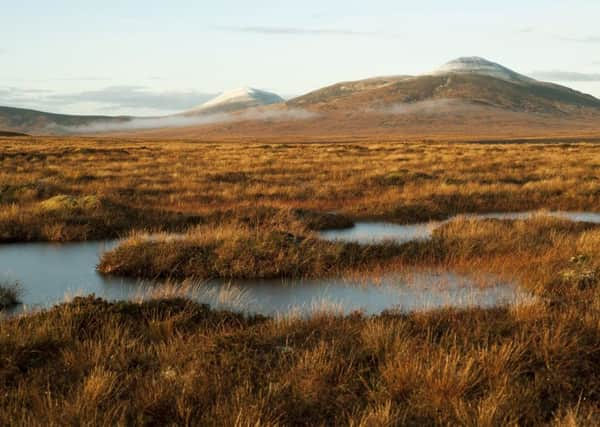Scottish peatland restoration wins £26,000 funding boost


The scheme, run by RSPB Scotland, will receive nearly £26,000 for work to revitalise damaged peat bogs in Sutherland’s globally important Flow Country.
It is one of six projects to receive an award after winning votes from the public and EOCA members.
Advertisement
Hide AdAdvertisement
Hide AdThe grant will allow nearly four hectares of forestry plantation to be removed and the ground restored to blanket bog.
Healthy peatlands are important stores of climate-warming carbon, but when damaged can actually release greenhouse gases into the atmosphere.
Peat soils in Scotland contain almost 25 times as much carbon as all other plant life in the UK.
The carbon stored in peat and peaty soil here is equivalent to more than 180 years of greenhouse gas emissions from Scotland at the country’s current rates.
Peatlands are also vital wildlife habitat, supporting moorland birds and plants.
The bogs, which take thousands of years to form, also help prevent flooding and improve water quality by filtering out pollutants.
Blanket bog found in the Flow Country is the best example of its type in the world and holds about 400 million tonnes of carbon – double the amount of all the UK’s forests put together.
Non-native sitka spruce and lodgepole pine trees were planted around 30 years ago on peatlands in the Dyke plantation, near Forsinard.
The trees have caused significant damage to the bog.
Advertisement
Hide AdAdvertisement
Hide AdRestoring the site will provide habitat for a wide array of wildlife and plants, including hen harriers and insectivorous sundews.
It will also play a crucial role in tackling climate change.
Catherine Savidge, general manager of the EOCA, said: “The peat bog of the Flow Country is internationally important for wildlife and for its role as a carbon store.
“EOCA is delighted to be able to fund the work of RSPB Scotland to conserve this special wild space.
“It fits perfectly with EOCA’s criteria of funding projects that conserve threatened habitats and which have a link to outdoor enthusiasts, who can enjoy the wildlife and birdlife of the Flow Country.”
George Campbell, of RSPB Scotland, added: “The Flow Country is of European significance and we are delighted that EOCA members have recognised this and made this funding available.”
He added: “The results of our work are constantly monitored to ensure that the techniques of tree-removal and peatland restoration we choose have the maximum possible impact.
“The use of drain-blocking is particularly important in restoring the water table and encouraging the characteristic plants of the Flow Country to re-colonise the cleared areas.
Advertisement
Hide AdAdvertisement
Hide Ad“This work that the EOCA award will fund will be undertaken by local contractors and should contribute to the local economy.”
Other projects chosen to receive EOCA funding include a new eco-tourism venture that involves releasing captive elephants back into the wild in Thailand, an anti-poaching drive in Kenya, a river clean-up in Germany and an otter conservation scheme in Romania.